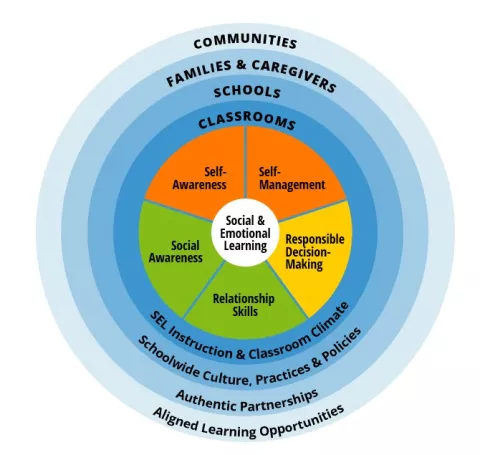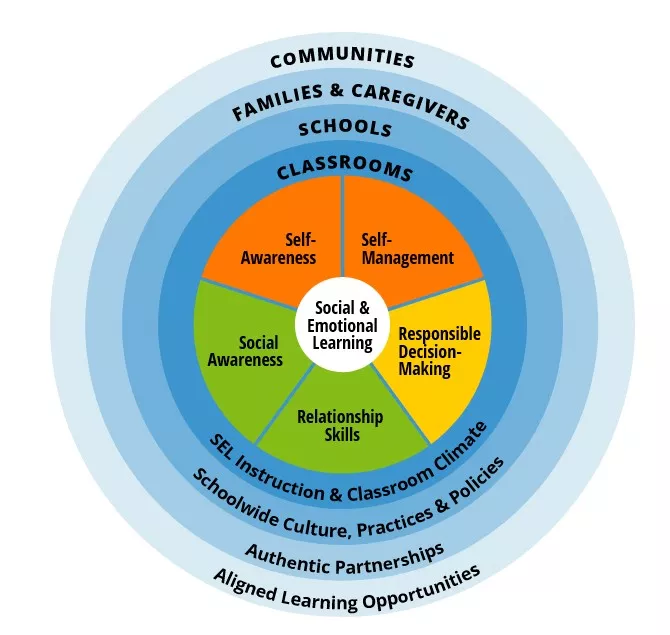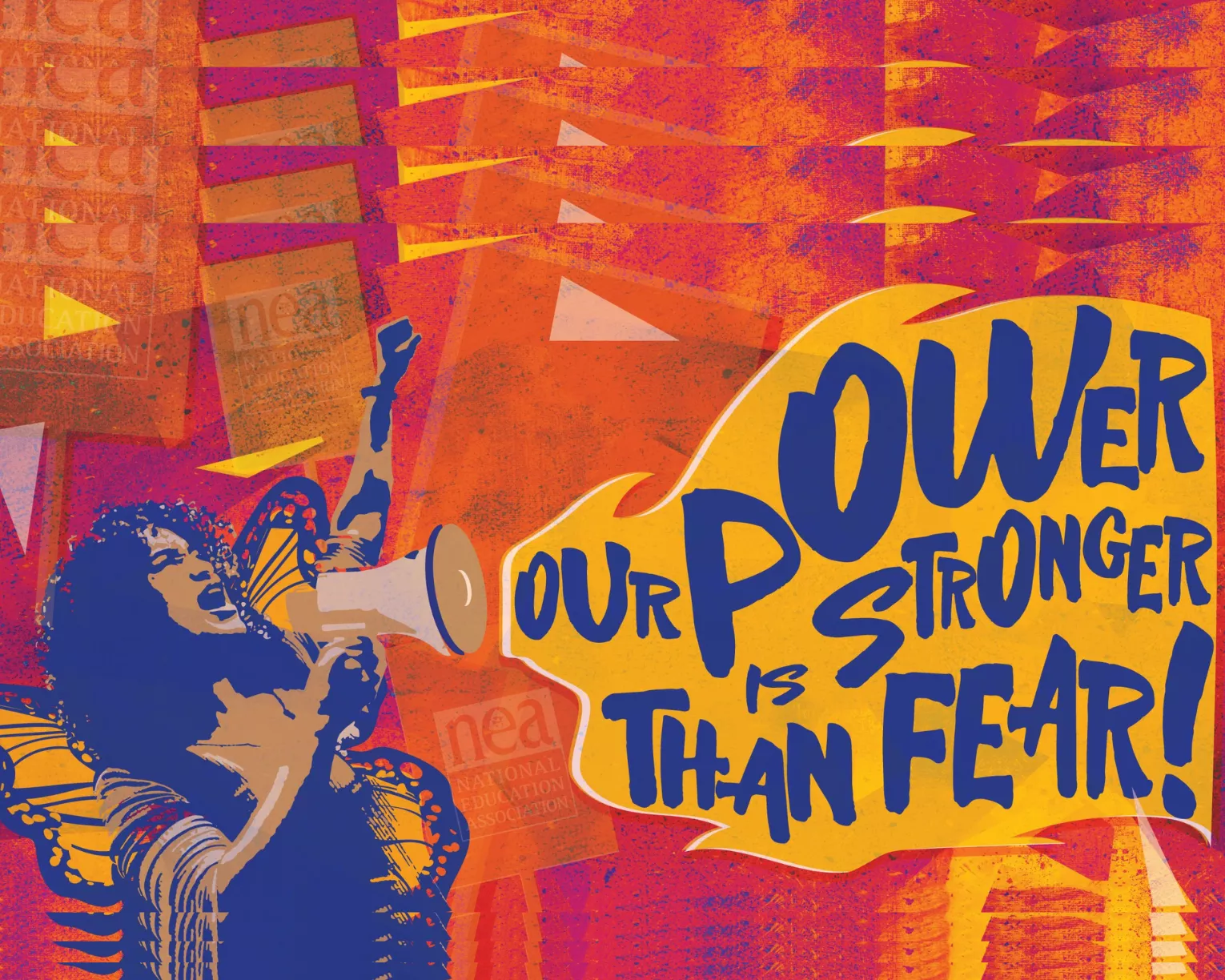What is social and emotional learning (SEL)? And how can schools ensure that English language learners (ELLs) are fully included and supported through SEL activities in the school setting?
This article offers an introduction to SEL along with helpful resources from organizations such as the Collaborative for Academic, Social, and Emotional Learning (CASEL). In addition, this article also shares ideas on how to ensure that ELLs are able to fully participate in SEL lessons and activities.
To highlight those examples, we have mapped a few ELL considerations and strategies to CASEL's SEL framework. These strategies represent just some of the ideas that educators can try — and they also detail important considerations when introducing new initiatives or ideas in a classroom or school community.
You will also find relevant examples and strategies in Teaching and Supporting English Learners: A Guide to Welcoming and Engaging Newcomers by Eugenia Mora-Flores and Stephanie Dewing.
What is SEL?
SEL is a process by which students can develop skills that help them thrive — skills such as such as the ability to regulate emotions, form healthy relationships, manage stress, and contribute to a community. While many educators have incorporated SEL into their instruction for a long time, it has gotten more attention in recent years as schools and families continue to navigate the impacts of the long-term disruptions brought by the COVID-19 pandemic and also look for ways to help students navigate other changes or challenges in their lives.


CASEL describes the big picture goal of SEL in the following way:
"SEL can help all young people and adults thrive personally and academically, develop and maintain positive relationships, become lifelong learners, and contribute to a more caring, just world."
How does it do that? The CASEL framework focuses on developing the following core competencies, which you can explore via CASEL's interactive SEL wheel:
- self-awareness
- self-management
- social awareness
- relationship skills
- responsible decision-making
These are valuable skills that not only can help students today but set the stage for healthy and productive lives in the future.
Is SEL an "extra"?
While many schools may hesitate to "add on" SEL, the renewed focus on SEL offers an opportunity to reframe its role. In fact, schools who regularly incorporate SEL describe it as the foundation from which everything else grows. The more comfortable and secure students feel in the classroom, the more likely they are take risks, try new things, and contribute to the classroom.
For example, Principal Sue Stanley, whose elementary school has long prioritized SEL, writes, "We understand students cannot learn until they feel safe and connected." This is particularly true in schools where large numbers of students have experienced trauma, as in the case of her school where many students have experienced hardship and family separation due to the civil war in Yemen.
In addition, we have heard from multiple educators of ELLs in particular that the investment of time early on building relationships, getting to know students, and creating a welcoming culture and environment in the classroom pays off all year long.
Related Videos
SEL 101: What are the core competencies and key settings? (CASEL)
Looking at the whole child: Conversations with an award-winning social worker
Principal Sue Stanley: Why creating a calm, safe environment in schools matters
Teacher Christine Price: Showing students you care
SEL: A working definition
For a more in-depth description of what SEL is, we recommend this definition that CASEL offers on their website:
"SEL is the process through which all young people and adults acquire and apply the knowledge, skills, and attitudes to develop healthy identities, manage emotions and achieve personal and collective goals, feel and show empathy for others, establish and maintain supportive relationships, and make responsible and caring decisions. SEL advances educational equity and excellence through authentic school-family-community partnerships to establish learning environments and experiences that feature trusting and collaborative relationships, rigorous and meaningful curriculum and instruction, and ongoing evaluation."
SEL and ELLs: The CASEL Framework
What does all of this look like for ELLs? One way to share some concrete examples is by using the CASEL SEL framework. We have shared excerpts of the framework here and encourage you to look at the complete framework on CASEL's website. Please note that under "Examples," we have only highlighted a few skill sets that are particularly relevant for ELLs, but CASEL lists others as well.
You may also find it helpful to pull in free bilingual resources from Feel Your Best Self, a puppet-focused SEL program for children from the University of Connecticut that provides videos and related materials for educators and caregivers in English and Spanish.
Suggested Further Reading
Speak Up For Students and Public Schools

